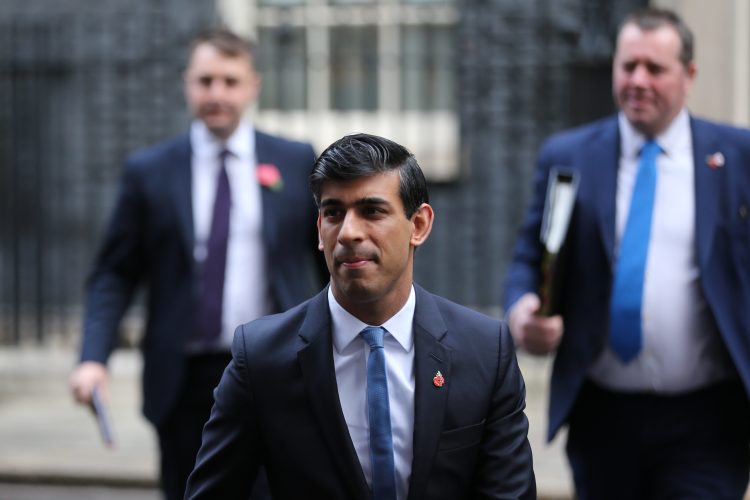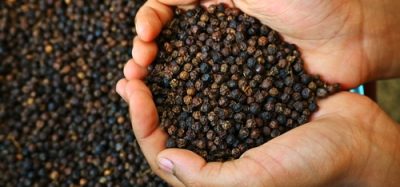Is the UK about to launch a food price cap?
- Like
- Digg
- Del
- Tumblr
- VKontakte
- Buffer
- Love This
- Odnoklassniki
- Meneame
- Blogger
- Amazon
- Yahoo Mail
- Gmail
- AOL
- Newsvine
- HackerNews
- Evernote
- MySpace
- Mail.ru
- Viadeo
- Line
- Comments
- Yummly
- SMS
- Viber
- Telegram
- Subscribe
- Skype
- Facebook Messenger
- Kakao
- LiveJournal
- Yammer
- Edgar
- Fintel
- Mix
- Instapaper
- Copy Link
Posted: 29 May 2023 | Joshua Minchin (New Food) | No comments yet
Multiple sources have suggested that the UK Government is in talks with retailers to launch a voluntary price cap scheme.


Downing Street has denied reports that Rishi Sunak's government will launch a mandatory price cap
The UK Government is reportedly speaking to the food and beverage industry on plans to introduce a voluntary price cap on certain items to ease the impact of food inflation on the poorest households – that’s according to multiple media outlets, though Downing Street has denied such claims.
The voluntary price cap would, according to the BBC, allow supermarkets to select certain items which they would cap on a voluntary basis, much like the system employed in France.
UK Health Secretary Steve Barclay explained on BBC One’s Sunday with Laure Kuennssberg’s programme that the talks were “about having constructive discussions with supermarkets about how we work together, not about any element of compulsion.”
While consumers may benefit from lower prices on certain items, the British Retail Consortium says high prices reflect high production costs, and question the impact of lowering them at a time when food producers are operating on small margins.
“This will not make a jot of difference to prices. High food prices are a direct result of the soaring cost of energy, transport, and labour, as well as higher prices paid to food manufacturers and farmers,” Andrew Opie, director of food and sustainability at the BRC, told the BBC.
“As commodity prices drop, many of the costs keeping inflation high are now arising from the muddle of new regulation coming from government. Rather than recreating 1970s-style price controls, the government should focus on cutting red tape so that resources can be directed to keeping prices as low as possible.”
The Food and Drink Federation (FDF) said it “welcome constructive engagement by government” in a statement given to New Food.
“Food and drink manufacturers are very concerned about stubbornly high food price inflation, and particularly the impact on low income households. However the disruption of the last few years has been significant, and the combined impact of covid 19, the war in Ukraine and Brexit have driven up prices across the board,” a FDF spokesperson said.
“Manufacturers continue to do what they can to limit price rises to consumers, which are always a last resort. However, their costs have gone up so much – for ingredients, energy, labour, packaging, logistics and so on – that it simply is not possible not to pass some prices rises on.
“What’s making the situation worse is expensive and inefficient recycling regulation, friction at the UK’s borders and persistent labour shortages, where we would welcome constructive engagement by government if they are serious about keeping particularly the lowest-priced foods affordable for everyone.”
The news comes after another month of increase for food inflation, at a time when the increase of overall inflation reduced by a couple of percentage points. Consumers are feeling the pinch, though many stress that these high prices are the result of tough producing conditions in the wake of Covid-19 and the Russian invasion of Ukraine. In a recent column for New Food, Professor Chris Elliott explained why he thinks that food prices should be “substantially higher”.
Commenting on the reports of of a voluntary budget, Elliot explained: “I can only state for the record how disappointed I am in a less than half baked idea of the government for a voluntary price cap for a few food items.”
“I have repeatedly stated we have no meaningful food security policy in the UK. I will use this current folly as another example to prove I am correct,” continued Elliott.
What do you think? Would a food price cap work? Tell us in the comments below!
Related topics
Food Security, Regulation & Legislation, retail, Supermarket, The consumer, Trade & Economy







